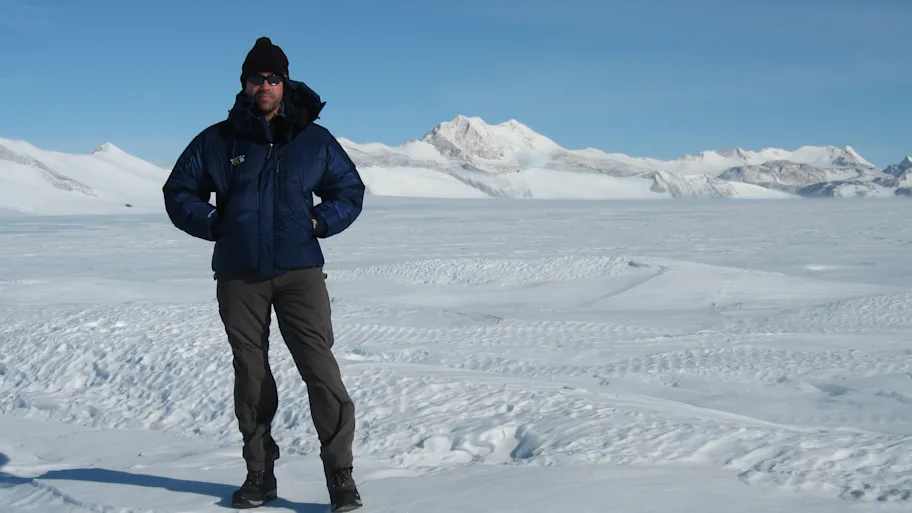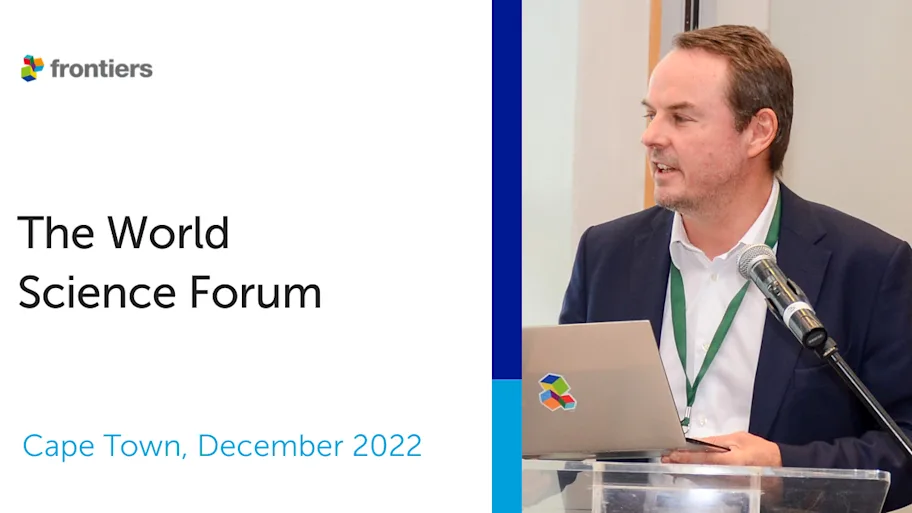
- Science news
- Featured news
- Prof Jeff Camkin: ‘The biggest misconception is that open science is just for researchers and academics. It’s not.’
Prof Jeff Camkin: ‘The biggest misconception is that open science is just for researchers and academics. It’s not.’

Prof Jeff Camkin
Prof Jeff Camkin, of the University of Western Australia, is a water and sustainable development specialist. He is co-founder and editor-in-chief of the World Water Policy Journal – a platform for the world’s emerging water leaders and thinkers. Jeff’s focus is on promoting the connection between policy, research, and community connectivity through transdisciplinarity, better utilization of local knowledge, more effective collaboration, and capacity building. Today, he tells us about the importance of democratizing science worldwide and implementing open science with the help of UNESCO.
What inspired you to become a researcher?
Frankly, I’m not really inspired to be a researcher, per se. Perhaps 20 years ago, I realized that what I wanted from my career was to understand water and natural resource management from as wide a range of viewpoints as possible to be more effective in influencing positive change. Sometimes the best way to do that is through research, sometimes it’s by directly advising decision-makers, and other times by working more closely with community or industry stakeholders.
So, my career has been a mix of activities, ranging from positions in government agencies responsible for water and fisheries policy development, providing policy advice directly to ministerial decision-makers, helping guide the strategic direction of NGOs. I’ve also been involved in leading research and stakeholder engagement in science organizations, design of new water education in academia, and sharing all these experiences and mentoring emerging professionals in the private sector.
I believe it is only through understanding the problems, challenges, and opportunities from all different perspectives can we hope to develop solutions that have longevity. So, the interface between policymakers, researchers, and community stakeholders is where I like to operate.
The key word in all of this is respect. We need to respect the different views and needs of stakeholders; we need to respect the role of decision-makers; we need to respect the many and varied sources of knowledge; and in academia and the research community, we need to respect all the different disciplines that can and must contribute to a more sustainable world.
Can you tell us about the latest research you’re working on?
Widening inequality in access to scientific and technological knowledge and resources is hampering the achievement of the United Nations Sustainable Development Goals (SDGs). While there has been some improvement in recent years, science continues to be too discipline based and policymakers are too often science averse. There is a need to improve the way decisions are made, in particularly by ensuring that all relevant knowledge is readily available and properly considered.
The core idea behind the growing push for open science is to allow scientific information, data, and outputs to be more widely accessible and more reliably harnessed with the active engagement of all stakeholders. In November 2021, following global stakeholder consultation, 193 countries approved the UNESCO recommendation on open science. That recommendation established, for the first time, a universal definition, common standards, and a shared set of values and principles for open science.
To help prepare for the implementation of open science, UNESCO’s office in Jakarta partnered with the Sydney-based Institute or Study and Development (IFSFD) worldwide to map current open science implementation strategies and mechanisms in Asia and the Pacific. The article, ‘Open Science for Accelerating the Sustainable Development Goals: Status and Prospects in Asia and the Pacific’, was written by myself and co-authors from IFSD, UNESCO, and elsewhere to build upon and present the findings of that study to the global audience through Frontiers in Political Science. I would like to take this opportunity to acknowledge all my co-authors, particularly Prof Susana Neto, and all the interviewees that were part of the underlying research.
In your opinion, why is your research important?
Our research highlighted the important step that has been taken in establishing a globally agreed recommendation on open science and the opportunity for open science to be a powerful tool to reduce inequality. However, it also highlighted that much more needs to be done to enable equitable implementation of open science around the world.
Focusing on five countries, one in each sub-region of Asia and the Pacific, our study showed that while there are many examples of good open science practices, none of the focus countries had in place all the policies, infrastructure, awareness, and capacity building needed. Typically, policy and funding frameworks have not yet been established and current inequalities in access to open science infrastructure may even exacerbate inequalities locally, nationally, and globally.
We found that there are great opportunities to learn from existing efforts, but also that there is no generic model; each country will need to develop an approach to open science which suits its own context.
Something else that became very clear from our key informant interviews was that trust is a key requisite for open science. Stakeholder groups right across society – from policymakers to industry to academia to civil society – need to have trust in open science and in open science practitioners for it to be supported and effectively implemented.
Importantly, our research identified a high level of interest in UNESCO continuing its leadership role to support open science implementation around the world.
Are there any common misconceptions about this area of research? How would you address them?
Perhaps the biggest misconception is that open science is something just for researchers and academics. It’s not. Making scientific information, data, and research outputs more widely and easily accessible to all of society, and ensuring we are incorporating all forms of knowledge in decision-making, will bring benefits across all areas of society.
The global effort to address the Covid-19 pandemic, for example, has shown the benefits of more open dissemination of scientific data, information, and research results. There are similar opportunities to support the global SDGs and, for this reason, all of us should be interested in and supportive of open science.
Profiling good local, national, regional, and global examples of open science implementation could play an important role in helping develop more understanding of its benefits across society.
What are some of the areas of research you’d like to see tackled in the years ahead?
While there are obviously still many gaps in our knowledge around particularly issues, it is our ineffectiveness in accessing and utilizing all available knowledge that is generally the greatest weakness in decision-making.
This is the area I would like to see more research and practical effort on; improving the utilization of all forms of available knowledge in respectful, context-dependent ways. Better understanding and more widely supported and sustainable decisions will come from more effectively harnessing lessons from the collective experiences of policymakers, researchers, industry, NGOs, and community groups across local, national, regional, and global scales. In this way we can build the wisdom needed to deal with our common but uncertain future.






